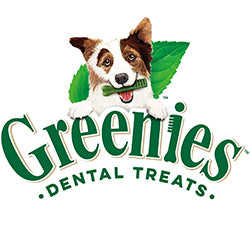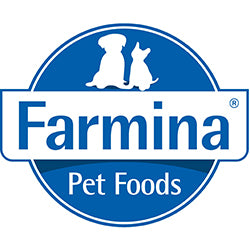
Understanding pet health and how to keep them healthy
Our pets are more than just animals; they're cherished members of our families. Their health and well-being are importance to us, but understanding what they need to stay healthy can be a complex task. This comprehensive blog will delve into various aspects of pet health, from diet and exercise to grooming and regular veterinary care.
Understanding Common Pet Health Issues
Pets, just like humans, can suffer from various health problems. Understanding what they are and how to prevent them is the first step in keeping your furry friends healthy.
- Diet-Related Problems
- Obesity: Overfeeding, especially with unhealthy treats, can lead to obesity in pets. Obesity is a risk factor for differnt diseases like diabetes and heart conditions.
- Allergies: Some pets might suffer from food allergies, requiring special dietary considerations.
- Nutritional Deficiencies: Feeding an unbalanced diet can lead to nutritional deficiencies affecting skin, coat, and overall well-being.
- Exercise and Obesity
- Lack of Exercise: Just like humans, pets need regular exercise to keep fit. Lack of exercise can make your pet gain weight and associated health problems.
- Obesity-related Diseases: Obese pets are at higher risk for diseases like arthritis, diabetes, and certain types of cancer.
- Dental Care
- Dental Disease: Dental health in pets is often overlooked, leading to tartar build-up and gum disease.
- Bad Breath: Regular dental care is essential to prevent bad breath, tooth loss, and other related health issues.
- Parasites and Fleas
- Fleas and Ticks: Regular flea and tick prevention is essential to keep your pets comfortable and disease-free.
- Internal Parasites: Worms and many other internal parasites can be harmful if left untreated.
- Chronic Illnesses
- Chronic Conditions: Pets may suffer from chronic illnesses like kidney disease or thyroid issues, requiring ongoing care and treatment.
Understanding these common pet health issues enables us to take proactive steps to prevent them and provide the best care possible for our beloved companions.
Proper Nutrition and Diet
Importance of a Balanced Diet
A balanced diet is the cornerstone of your pet's health. The right nutrients in the proper proportions are essential for energy, growth, digestion, and overall well-being.
- Proteins: Essential for growth, especially in young and pregnant animals.
- Fats: Provide energy, make food tastier, and are essential for brain development, skin health, and other functions.
- Vitamins and Minerals: Vital for many different bodily functions and must be supplied in the right amounts.
- Water: Essential for all life processes.
Special Dietary Needs for Different Species
Different pets have unique dietary needs, and understanding them is essential:
- Dogs: Require protein, fats, and certain vitamins like vitamin A and B-complex vitamins.
- Cats: Obligate carnivores, meaning they need animal-based proteins and specific nutrients like taurine.
- Birds, Rabbits, Hamsters, and Other Small Pets: Have specialized diet requirements that must be researched and provided.
Tips for Choosing Quality Pet Food
- Read Labels: Check for specific meat sources, avoid fillers and artificial preservatives.
- Consult Your Vet: Your veterinarian can recommend the best diet based on your pet's age, weight, and health conditions.
- Avoid Human Foods that are Toxic to Pets: Such as chocolate, grapes, and onions.
Physical Exercise and Mental Stimulation
Importance of Regular Exercise
Regular exercise is essential to keep your pet's body and mind in shape:
- Weight Management: Helps control weight and fight obesity.
- Behavioral Management: Regular exercise often leads to better behavior as pent-up energy is released.
- Building Bond: Activities together strengthen the bond between you and your pet.
Activities for Different Pets
- Dogs: Walking, running, playing fetch, agility training.
- Cats: Interactive toys, laser pointers, climbing structures.
- Birds: Flight (in a safe environment), perches with different textures.
- Small Mammals: Exercise wheels, tunnels, supervised exploration.
Mental Stimulation and Enrichment
Keeping your pet's mind stimulated is equally essential:
- Puzzle Toys: Encourage problem-solving.
- Training: Teaches new skills and provides mental challenges.
- Environmental Enrichment: Rotating toys, different scents, and experiences keep things exciting.
Veterinary Care and Regular Check-ups
Importance of Regular Vet Visits
Regular veterinary visits are vital for:
- Early Detection: Spotting potential health problems early.
- Vaccinations: Keeping up with required vaccinations.
- Preventive Care: Regular flea, tick, and worming treatments.
Special Care for Chronic Conditions
Pets with chronic conditions may need special care:
- Regular Monitoring: Regular check-ups and appropriate medication.
- Dietary Management: Special diets for conditions like diabetes or kidney problems.
Grooming and Hygiene
Proper grooming is about more than just looking good:
- Skin and Coat Health: Regular brushing helps distribute oils, keeps the coat healthy, and allows for the early detection of skin problems.
- Nail Care: Regular trimming to prevent overgrowth and related issues.
- Ear and Eye Care: Regular checks and cleaning to prevent infections.
Special Considerations for Different Life Stages
Each stage of your pet's life presents unique challenges:
- Puppies and Kittens
- Extra attention to diet, vaccinations, and training.
- Adult Pets
- Continual focus on diet, exercise, preventive care, and dental health.
- Senior Pets
- More frequent veterinary visits, special diets, managing chronic conditions, and comfort care.
Understanding pet health is a complex but rewarding endeavor. It requires careful attention to diet, exercise, preventive care, and special needs as your pet goes through different life stages. The love and care you invest in your pet's well-being will be returned tenfold in companionship, love, and the joy of a healthy, happy pet.
- Choosing a selection results in a full page refresh.












